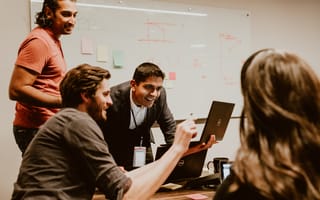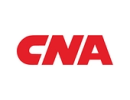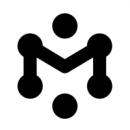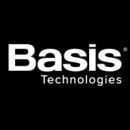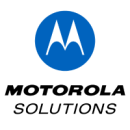
Behind every great company exists a team of people all driven by the same goal. And while this objective can take many different forms, the passion that goes into defining it is often the same. The ultimate aim for any company leader is to convince every team member to believe in their company’s overarching vision — a feat that is generally easier said than done.
In truth, cultivating a mission-driven culture involves more than merely establishing a set of core values. Rather, these values should be implemented into every aspect of an organization and should be visible within everything that a company does. Every team member should live out a company’s mission each day, fueled by their leaders’ commitment.
To ensure that employees are aligned, it’s up to a company’s leaders to live and breathe its vision each day, whether that’s through actions like holding celebratory team meetings, keeping track of employees’ well-being and encouraging teams to support their local communities. Built in Chicago recently checked in with leaders across Chicago to learn how they’ve successfully galvanized their teams around their company’s mission.
CNA is a property and casualty insurance company that serves clients from a variety of sectors. As the Executive Vice President and Chief Operating Officer of CNA, Michael Costonis carries out the company’s mission to help its customers better manage their risks and grow profitably.
How do you translate your company mission into specific actions or goals for both the company and individual teams?
While we each have individual roles to play, our teams — from technology to operations to data and analytics to strategy and beyond — are strongest when we work together. At CNA, we believe that increased energy and performance goes beyond the sum of its individual parts, and through collaboration, accountability, empowerment, action-oriented learning and fun, we will continuously innovate solutions and insights for the benefit of our employees and customers. When we approach a problem, we do so through the lens of our business, across all areas and functions. In order to make a change that matters most to our distribution partners or customers, we need operations, technology and analytics working hand-in-hand to create the best solution.
What aspect of your company culture or values most reflects your company mission?
The power that fuels CNA is wrapped around technology: business processes that get customers serviced quickly and people designing better ways to make data-based decisions. We don’t always see these drivers of our business. They just happen day in and day out. But they work because of the more than 800 people who drive tech, operations, data and analytics, strategy, transformation and procurement.
A key example of this is the way in which we actively seek out expertise and input, no matter where it resides in the organization — from a newly minted intern to a senior executive. All input and suggestions are gathered and valued, and employees are encouraged to imagine new ways of working, which is supported by thoughtful, structured execution.
What role do your team members play in building, strengthening or celebrating your company mission?
We power the rapid and continuous evolution of our business. It is achieved through hard work, resilience, dedication and creativity. We will create a bold new future by learning new skills and building new teams and new approaches. We believe that the best way to live our values is to apply them every day by truly trying to improve our business for the benefit of our customers and distribution partners. Our employees are actively engaged in creative thinking and problem-solving, from how we run our business processes to what technology we should be deploying and working with our key partners to create next-generation solutions that we put into production.
We’ve worked really hard to internalize the perspective of our customers, distribution partners and employees in everything we do. This helps make our work much more purposeful by removing any ambiguity as to the “big why,” and this has allowed us to drive breakthrough thinking. By doing this, our employees can see a direct impact between their day-to-day work and the value they are providing. Change won’t stop, and we are getting prepared for it. I am excited about our positive momentum in helping create the future of CNA.
Slalom is a global consulting firm that focuses on strategy, technology and business transformation. As General Manager at Slalom, Ali Minnick plays a role in meeting the technological needs of organizations worldwide.
How do you translate your company mission into specific actions or goals for both the company and individual teams?
Slalom’s vision is for everyone to love their work and lives, and our purpose is to help others reach for and realize their vision. Everyone is invited to have the same level of connection and entrepreneurial pride in our company’s vision and purpose. We don’t just aspire for our team members to see a future at Slalom; we want them to see their ability to build their future here and, of course, love that future.
Our vision and purpose extend beyond Slalom’s virtual walls. In 2019, we surveyed over 3,000 clients and 93 percent said that we were good or great at helping them reach for and realize their vision. We aspire for that to be 100 percent, but we can see the powerful results when our teams approach every project with the question: “How can I help my client reach for and realize their vision?”
One way that we help translate our vision and purpose for our people is by laying out short-term, concrete actions they can take to live that vision and purpose every day. Efficient communication is key. Every week, our leadership team identifies short-term actions that anyone at Slalom can take to support our strategic priorities. For example, we might say, “Help your clients think about their 2021 plan” or “Celebrate amazing work that you see on your team.” We add these to our weekly consolidated email. This helps our people see in a single view the progress that they are making to contribute to our quarterly and annual goals.
What aspect of your company culture or values most reflects your company mission?
Some of the best advice I ever received was, “Do more than you say and be more than you do.” Culture and values are easy to talk about but only take on true meaning when they guide what you do. They only become real when you consistently model them.
Slalom has 10 core values, and each has a deep connection to our mission. The one that I come back to most often is, “Do what’s right, always.” For almost every decision I make as a leader, I ask myself, “Am I truly doing what’s right? And who am I doing right by, and why?” It’s like a compass.
“Do what’s right, always,” is especially important in this moment in history, as we grapple with the ongoing impacts of racial inequality. As a community, we recognize that we are called upon to be active, not passive, in living up to the values that we’ve declared. Earlier this year, we had to ask ourselves, “Are we doing what’s right?” and “Are we doing enough?” The answer was that we could do better. Since then, we have developed and are executing an anti-racism action plan, including investing in a dedicated inclusion and diversity leadership role within Slalom Chicago to track and accelerate our progress. We said we could do better, and now it’s time to do some hard work and work toward being better.
What role do your team members play in building, strengthening or celebrating your company mission?
Now that we’ve grown organically to a global company of 8,500 people, we want to maintain that same soul with scale. One of the challenges is to make sure that team members can feel the same level of entrepreneurship, opportunity and pride within the company and our mission, whether they’ve been with Slalom for 10 days or 10 years and whether we are 100 or 10,000 people.
Help people see what they can build at your organization, and celebrate the impacts they make; it’s key to attracting and retaining great talent. At Slalom Chicago, we share a concept that I call “founder’s pride” — that anyone can join and build something new here. The pride of founding something is a powerful feeling and one that I want everyone to be able to experience here. What sparks that feeling of pride will depend on your unique strengths, but everyone is invited to innovate and improve our culture and business.
For Chris Gay, CEO of healthtech company CareAdvisors, streamlining the enrollment process and helping individuals get fast access to healthcare is just part of the daily grind. He and his teammates are building an automated, unified social care system to eliminate health disparities.
As a team leader, how do you translate your company mission into specific actions or goals for both the company and individual teams?
Companies that lose focus of their missions are bound to fail. In contrast, we recruit people who are mission-aligned and have quarterly and monthly strategic planning updates. For any new opportunities, we benchmark them against mission-based goals, which helps us eliminate items that are not on-mission.
How have you aligned your company’s culture with its mission?
Aligning culture and values with your mission is an important activity that is easy to overlook. We conduct monthly meetings during which we celebrate and recognize activities that help keep the team connected in the current environment.
What role do your team members play in building, strengthening or celebrating your company mission?
KPIs are not enough; a company needs to be able to tell its story to live its mission, and our team presents patient stories. This demonstrates the impact of what we do and the impact that the company has on the vulnerable populations we serve.
Mastery Logistics Systems provides a cloud-based SaaS solution built to fuel automation, visibility and productivity within large corporations’ supply chains. Arun Umapathy, Senior Engineering Manager at Mastery Logistics, plays a part in supporting the complex world of logistics.
How do you translate your company mission into specific actions or goals for both the company and individual teams?
Mastery is on a mission to empower shippers, carriers and logistics companies to thrive in complexity. In order for our customers to thrive, we must constantly work to tame complexity. In a nutshell, my team is responsible for building the platform that allows companies to track, trace and have full visibility into their shipments in transit at all times. These companies may range from the world’s largest food and beverage companies to raw material distributors, to e-commerce retail producers and everything in between. The approach I take is to hire highly motivated people, who not only write good software, but also have bought into Mastery’s core ethos. Everyday, we get to build something new and exciting and approach problems within our industry in unique and interesting ways. So, our mission is sort of built into everything we do. My teams work incredibly hard — what we are doing is not easy — and I am incredibly proud of how they take ownership to tame the complexity into workable, scalable solutions.
What aspect of your company culture or values most reflects your company mission?
Our north star is the leadership of Marianne and Jeff Silver. They have set a tone of compassion, transparency, curiosity and learning that is enshrined in everything we do. Learning, specifically, plays a large role. To me, learning is analogous to a software update. If you are not updating your internal software, you won’t be able to keep up with new rigors of the world and will be left behind. Mastery offers us an education credit that encourages learning and self-improvement, and that is very refreshing. Marianne and her team have been so in-tune and accommodating during the pandemic, making sure we get anything we need. This ranges from discounted meals delivered to our homes to giving everyone subscriptions for wellness apps. She makes a huge investment in us, and as someone who manages teams, that is so helpful.
What role do your team members play in building, strengthening or celebrating your company mission?
Mastery is a sum of its parts, and each individual contributes to that simple equation in such profound ways. Anytime we are solving a new problem, it’s very important to me that we get as many viewpoints and perspectives as we possibly can. Once we have all of the data and points of views consolidated, we can solve for “X” and drill down into a solution. This collaborative approach helps us iterate quickly and keeps us on track in such a fast-moving environment. As a result, we build some really cool things. Each week, the entire engineering department does weekly demos. Teams are encouraged to share their work with other engineers, and it gets very technical. It’s a lot of fun and a great way for us to share knowledge and celebrate our successes.
Centro provides enterprise-class software for digital advertising organizations. As Chief Marketing Officer at Centro, Katie Risch furthers the company’s mission of supporting the increasingly complex digital media landscape and improving the lives of people working within it.
How do you translate your company mission into specific actions or goals for both the company and individual teams?
Our mission is to improve the lives of people working in the advertising industry through our software, Basis, which automates the complex digital media landscape. When the pandemic hit and drove businesses to work from home, it was a test to see what Centro could do to support our industry. Our first action was to explore ways to serve customers in virtual settings, so we looked at how we could bring value in new ways. One was to shift our educational events from in-person to virtual, and to open them up to non-customers. Since March, we’ve had over 700 media professionals join the virtual program, free of charge. Another action was identifying key pain points that working at home exacerbated for our customers and create solutions for them. This resulted in the evaluation, development, testing and release of a completely new product for advertising collaboration in the span of three months. This effort required us to rally teams in software development, UX design, customer success, marketing and sales.
What aspect of your company culture or values most reflects your company mission
Centro believes that people are happiest when they are giving and when they are growing. We want to be helpful and give to colleagues, peers, friends and others. We also believe in embracing change, which we’ve seen plenty of this year! These intentions go hand-in-hand with our mission of improving and changing the way that people in this industry do their jobs. And over the last few months, these values have manifested in the increase of resources we create for the industry to help provide guidance during change and disruption. To name a few, we created research, fact sheets and guides for marketers that address the specific challenges during COVID-19. We created an on-demand, self-guided online course about digital advertising. We organized new webinars offering tips and best practices for advertising during a pandemic. All of these are readily available for free for any professional or student.
What role do your team members play in building, strengthening or celebrating your company mission?
The increase in content and education programs that we are producing for our industry epitomizes our giving mentality. These efforts require more time, knowledge and resources than what we had planned for in 2020. It required various team members across different business groups to stretch into new roles and contribute time and knowledge for efforts outside their core functions. We had media service professionals writing data sheets and blog posts. Our product developers were doing demos for customers. This wild year has pushed us to bear down and find different ways to contribute to our team.
TopstepTrader enables aspiring traders to learn how to manage risk, gain confidence and trade capital without putting their life savings on the line. As COO at TopstepTrader, Melissa Footlick drives the company’s mission to help traders worldwide safely engage in and profit from the financial markets.
How do you translate your company mission into specific actions or goals for both the company and individual teams?
Topstep’s mission is to provide a safe experience, so traders can professionalize their passion, and we put that into practice in almost everything we do as a company. Innovation and new product iterations are more than just another part of our daily routines. They’re ingrained in our culture. Each department is accountable for creating an environment where traders can safely engage in and profit from the financial markets.
Our product and engineering teams work side by side, refining our technical capabilities to improve the user experience and expand our infrastructure’s scalability, so we can continue to design and build the tools our traders need to be successful. Along with that, our marketing team continuously creates educational resources and actionable market information to guide our traders and keep them up to date on relevant market trends. And the entire company is anchored by our world-class support team (our users constantly tell us this), who work day and night to help usher our traders throughout their journey.
What aspect of your company culture or values most reflects your company mission?
Our mission aligns perfectly with one of our core values: “We believe traders are at the center of our work.” We start every all-hands company meeting by watching a video or reading testimonials from our traders — the “why” we do what we do. The motivation our team needs to continue working hard to achieve our mission comes directly from the experiences our traders share with us. Whether it’s how our program helped them develop their trading skills or an inspirational story about using profits as a springboard to allow for financial freedom, we thrive because we know we’re helping our users achieve their dream of becoming a professional trader.
What role do your team members play in building, strengthening or celebrating your company mission?
Every team member contributes to helping us achieve our mission, whether they’re working directly on our user experience to develop our products and educational content or are part of the crew that takes care of the rest of our team members. We pride ourselves on being an incredible place to work, and we go above and beyond to ensure our team members’ happiness and well-being because we know when we take care of them, they will, in turn, take care of our traders.
Another core value at Topstep is “Giving back moves us all forward.” In practice, we live this value by donating to a non-profit organization of a team member’s choice when we reach a significant milestone toward achieving our mission. The feedback we receive from team members on this is nothing short of outstanding. We have found that the rewarding feeling of supporting a meaningful cause is another great motivator to continue doing good work.
Cisco Meraki is dedicated to creating powerful, simple technology with the potential to change everything. Kelsy Burnette, Account Development Manager at Cisco Meraki, plays a role in furthering the company’s mission to help global businesses and enterprises save time and money.
How do you translate your company mission into specific actions or goals for both the company and individual teams?
Cisco Meraki's mission is to simplify powerful technology, allowing passionate people to focus on their mission. Our Meraki values are what we use as a guiding light for our employees, to enable and embody our mission as we work with each other and with our customers. Our four core values are “care deeply,” “everybody in,” simplify everything,” and “be brave.” As a leader, we are responsible for ensuring everyone on the team not only knows our core values but also practices them every day. We make a conscious effort to recognize when these values are being demonstrated and encourage others to do so as well. I consistently share my feedback with my team in one-on-one discussions to ensure they know their positive actions and team mentality are noticed and appreciated. I also am able to select an “ADR of the week” to give a special shoutout to a rep that went above and beyond and exemplified the Meraki values that week.
What aspect of your company culture or values most reflects your company mission?
I feel strongly that our company value, “care deeply,” is reflected most significantly in our company mission because the people are what have kept me at Cisco Meraki for more than four years. Every single person I have met has been willing to make time to help me master whatever skill set I’m looking to improve. This growth mindset and supportive mentality carries over to our customers, as our sales teams offer the same level of support in finding the right solution for our customers.
I’ve had countless mentors throughout my time as an inside sales representative that have helped me immensely. Now that I’m in a leadership role myself, I look for ways to give back as much as possible. I do monthly syncs with several women on the team to help them navigate and pursue their career aspirations within Meraki. I’ve also assisted in coordinating coffee chats to increase collaboration across the sales team now that it is a little more difficult to connect in our new work-from-home environment.
What role do your team members play in building, strengthening or celebrating your company mission?
My team specifically is a critical part of the Meraki sales cycle. The account development team is a customer’s first interaction with Meraki. We all know that the first impression is often the most critical part of the interaction, so it’s important that my team embodies the Meraki mission in their approach. We use our company values to ensure we are in alignment with the company mission — to simplify powerful technology in order to free passionate people to focus on their mission. To do this, we encourage consistently bringing your best self to work so we can focus on helping customers see how Meraki can truly improve their lives on a daily basis.
An example of this is that we recently had three new hires start during this unprecedented time of working from home. The team proactively stepped in to get creative with our remote onboarding. They have demonstrated the value of “caring deeply” through their enthusiasm to do whatever was needed to get our new hires up to speed and make them feel included in the team. They also demonstrate “everybody in” with their extreme willingness to host trainings and share best practices.
Envoy Global is a global immigration service provider that offers a platform designed to help companies hire and manage an international workforce. As CRM Team Lead at Envoy Global, Frannie Snediker supports the company’s mission to simplify the immigration process.
How do you translate your company mission into specific actions or goals for both the company and individual teams?
Envoy’s core values revolve around responsiveness and thoroughness. These two qualities make for a partnership where our customers feel confident in our work. Another quality I think is integral to feeling pride and satisfaction in your work is helpfulness. Immigration is a dynamic and complex field; our clients feel this pressure on a daily basis. The ability to work side-by-side with customers to reach common goals is truly uplifting. As a team lead, it’s my goal to make sure my team creates space to reflect on how valued they are by the customers they help navigate the chaotic world of immigration. At the end of the day, I think it is also crucial that we’re all united by a shared belief that immigrants make our country a better place to live, and we wouldn’t be the country we are without the contributions of the folks our teams get to help every day.
What aspect of your company culture or values most reflects your company mission
There’s a strong current of responsiveness and thoroughness that runs through each team and department. This is reflected through a strong presence of cross-team communication, which is unmatched in other environments I have experienced. As a team lead, I try to help my peers seek out opportunities for collaboration and develop relationships internally with customers and our partnering law firm. As with any workplace, it can take time to establish relationships, especially in virtual settings right now, but the metaphorical door is always open at Envoy. This is even more true and needed for our customers and their foreign national employees. Our platform is designed and used to ensure the immigration process is transparent, open and collaborative.
What role do your team members play in building, strengthening or celebrating your company mission?
To me, each person, team and the Envoy platform itself plays a much-needed role with our customers and their sponsored employees to manage what can be complicated, confusing and overwhelming scenarios that the world of immigration presents. On the customer relationship management (CRM) team, our role is to help solve problems by project managing and identifying experts to address these matters. Our team services the customers alongside our technology, which enables a seamless and transparent experience — all with one mission in mind: to help make this complex world of immigration seem a little less chaotic for our customers.
When many of our customers began moving to remote work this year because of the pandemic, their first call was to their CRM to begin organizing and understanding next steps to ensure their foreign national talent was compliant. With all the uncertainty in almost every aspect of our collective personal and professional lives, the notion that Envoy and our team can help our customers so closely and authentically is such a key component to our team’s and company’s mission and values to ensure people can work anywhere in the world.
Carminati Consulting is an IT consulting firm and software company dedicated to helping its clients more effectively serve their clientele through web software application development, website design, data analytics, project management and more. Sales and Marketing Manager Erica Gonzalez Gheesling plays an integral role in driving the company’s mission to make its communities better and stronger.
How do you translate your company mission into specific actions or goals for both the company and individual teams?
Our mission statement is, “It is our privilege to design and deliver technology solutions and services that enable our clients to more effectively serve their communities.” Core values that have been established from the onset, which explain and support our mission, are shared with each new employee during the onboarding process and are highlighted on a monthly basis during our internal team meetings. During our monthly team meetings, we also highlight specific client engagements and discuss what these organizations mean to their communities. It allows us as a team to reflect on why we do what we do and emphasize the impact our work has on the success of the local health and government organizations we work with. As we continue to grow outside of the Chicagoland area, we are able to impact more communities with our work, which makes our mission statement that much more meaningful.
What aspect of your company culture or values most reflects your company mission?
Our dedication to innovation and client service most reflects our mission. As our clients’ needs evolve and grow, we try to always be one step ahead and anticipate solutions and enhancements that will accommodate their future needs. COVID-19 has brought to light our eagerness, expertise and flexibility to evolve right along with the needs of our clients.
What role do your team members play in building, strengthening or celebrating your company mission?
Members of our leadership team serve as captains to various internal committees we've created to address a variety of values we try to expand upon, whether it be company culture, process improvement, professional development or community service. These groups meet, then present their ideas and solutions to the rest of the company regularly.
Strata Decision Technology provides a cloud-based SaaS financial planning, analytics and performance platform for the healthcare industry. As Senior Vice President of People Operations at Strata Decision Technology, Heidi Farrell furthers the company’s mission to help heal healthcare.
How do you translate your company mission into specific actions or goals for both the company and individual teams?
People join organizations for different reasons at different times. Some join looking for an experience, while others may be immediately drawn to the mission of the company’s work. Here at Strata, we invest time and effort to ensure that, for whatever reason a talented person joins our team, they understand the impact their work has on our mission. Now more than ever, people can see and feel the importance of addressing the cost of healthcare. Our goal at Strata is to ensure our team understands the purpose of their work and feels tied to Strata’s mission to help heal healthcare, as healthcare impacts everyone.
Through our LIFT program, which is Strata’s learning and development program, we spend time with our team connecting the dots of not only how to do their job but also why their job matters. Our leaders discuss outcomes of our client work and link the work our team is doing with the stories we see every day in the news about the crippling cost of healthcare. Strata has also developed a speaker series, bringing in industry experts to talk to our teams about how their work is helping hospitals and healthcare systems in real time.
What aspect of your company culture or values most reflects your company mission?
At our core, team Strata is grounded in the idea of service. We spend our days focused on serving one another, serving our customers and serving our community. These are not just words — we do not just pay lip service to this idea. We live it. Whether it be our dedication to solving the biggest socioeconomic issue of our time, or our efforts in addressing food insecurity in our community, service is the lens we place on every initiative, every program and every investment we make. Hunger is directly linked to population health, so our partnerships with organizations like the Greater Chicago Food Depository or Feeding America connect our mission to our community work and desire to serve. It is one of the many things that makes Strata so incredibly special.
What role do your team members play in building, strengthening or celebrating your company mission?
Strengthening our effort to help heal healthcare is grounded in building a team of diverse perspectives and unique talents. Each individual brings their own experiences and skills that fundamentally contribute to the difference we are making in the healthcare industry. Over a quarter of our team is “faculty” as part of our LIFT program, sharing their passions, expertise and purpose of their work through the courses they teach. We foster an internal communication philosophy that is transparent and frequent, ensuring that our team is informed, empowered to provide feedback and engaged in our mission. At the end of the day, each member of our Strata team is driven by doing something great — writing code, delivering to our customers, innovating around problems — all ultimately fueling our mission to help heal healthcare.
GreenKey Technologies automates and analyzes real-time human tasks by converting complex, mission-critical audio and text into seamless data structures. As COO at GreenKey Technologies, Liz Petoskey drives forward the company’s mission to give organizations greater visibility into the data they need to sell smarter.
How do you translate your company mission into specific actions or goals for both the company and individual teams?
It begins even before someone starts at GK, in our hiring process. By the time qualified candidates interview with GK, they’ve answered questions demonstrating their level of self-awareness or aptitude for optimism, such as, “Are you a lucky person?” This enables us to hire people who understand and demonstrate our values.
Integrity is key to success at GK. We’re a small team where everyone wears multiple hats. Letting someone down on the team is a terrible feeling. We are constantly communicating our individual commitments and team goals to the company and helping our teammates when they are stuck or overwhelmed.
What aspect of your company culture or values most reflects your company mission?
Our value of “compassionate candor” means surfacing bad ideas and replacing them with good ones, in a kind way. We have a bi-weekly company meeting on Fridays, during which people ask questions beforehand or during the call to our CEO and management team. From the most junior member to leadership, people can directly raise concerns and work as a team to address them.
What role do your team members play in building, strengthening or celebrating your company mission?
The past six months have required all of us to utilize our company mission and principles in a powerful way. Every single team member has shown optimism and empathy for each other during this uncertain period. Being entirely remote since March has forced us to all over communicate and show each other grace with new schedules and routines at home. GreenKey’s persistent curiosity shows up in lunch and learns from our tech team or in sharing geological facts from a recent hike on the shared Slack channel.
Elevate K-12 brings live, online classroom instruction to schools. Cindy Boynton, Vice President of Operations, focuses on making high-quality instruction available to all students, irrespective of where they live.
How do you translate your company mission into specific actions or goals for both the company and individual teams?
Our mission is to give every student access to high-quality instruction, no matter their ZIP code. Last year, there were 500,000 reported teacher vacancies, and most of them were in low-income neighborhoods. Our mission is to make sure that every child, irrespective of ZIP code, gets access to the best teaching. That is what we do; that is in our blood and each Elevate K-12 employee lives and breathes that mission. What we do is not easy to execute, and a weak heart would easily give up if they don't intrinsically believe in that mission. My field operations team has the fortunate opportunity to be in our classrooms seeing our mission come to life day in and day out. We live and breathe the passion of our mission with everything we do because it directly impacts students’ experiences in the classroom.
At Elevate K-12, we have concurrent, live, synchronous instruction operations across hundreds of classrooms, especially in low-income schools. Anything can go wrong at any time, but my team is ready to jump into action to problem-solve and assist thousands of students and hundreds of teachers. My team is the “warrior team.” They would not be able to manage and deliver without two key qualities: a deep passion for the work and a deep rooted attitude to problem-solve in a live environment.
What aspect of your company culture or values most reflects your company mission?
One of our company values is “delivery on time, with high quality in mind.” This particular part of our culture is what makes us so focused on customer excellence, especially in operations. We do everything we can to start a live class in a school on time, but we won’t sacrifice quality. Oftentimes, we run into situations where schools need to start their classes as soon as possible.
We are challenged with aligning our resources quickly to meet the school start date. We are able to do this as a result of our collaborative work culture, focus on building and executing on internal processes, direct communication and a culture of trust. If it's a subject like math, we are able to take a look at a learning sequence, organize the work accordingly, establish teacher and paraprofessional training and set up a virtual classroom in a matter of weeks.
What role do your team members play in building, strengthening or celebrating your company mission?
After our sales team solidifies a partnership with a school district, my team is the first and key interface between the schools we bring our live instruction classes alive in and Elevate K-12. Principals, teachers and students are the customers that drive our passion for what we do, but we love it because of who we do it with.
We all work very, very hard here. We have a culture of working hard, and then we go back to our personal lives, reset and come back. We don't have much of a party culture. We celebrate daily wins by cheering each other up and reminding ourselves of why we are here: to disrupt an antiquated K-12 industry that needs massive reform, and we are the change-makers.
Motorola Solutions offers mission-critical communications services in order to keep businesses thriving and communities safe. As Vice President of Command and Control at Motorola Solutions, Chris Rapala supports the company’s commitment to usher in a new era in public safety and security.
How do you translate your company mission into specific actions or goals for both the company and individual teams?
Our purpose is to “help people be their best in the moments that matter.” Our teams, from development to delivery, know that their products and services are vital to the mission of our customers. One example of how we live the purpose is by sharing customer success stories in a chat room with all members from our teams.
We put an emphasis on partnering with our customers by using a “show don’t tell” method to actually see the obstacles our customers are facing when introducing new product design. We listen, iterate and improve in collaboration with the community to which we serve up these solutions. In addition, our developers and product managers work with industry-leading product designers, researchers and data scientists to focus on better user outcomes like our new CommandCentral Smart Transcription, a service that brings artificial intelligence and machine learning alongside 911 call takers. We had several customers involved in a pilot of this product and continue to incorporate their feedback into the production version.
What aspect of your company culture or values most reflects your company mission?
We have decades of experience with our customer base and a culture of innovation enabling better outcomes for first responders, and most importantly, the communities they serve. Our innovation is not only played out every day as our product community works in their teams, but is also fostered by team events, such as directed innovation sessions and hackathons. Due to our new work conditions this year, we’ve seized the opportunity to go global with these events and have been pleased by the connectivity it has brought amongst our global workforce.
Our directed innovation sessions are often hosted by an internal subject matter expert on relevant business topics, and most recently, we ideated around real-world fire fighting struggles, which our employees can actually experience for a day. Our recent hackathon was fueled by ideas submitted by our sales team based on customer requests for features. And as an incentive to innovate quickly, the hackathon judging scores are based on the ability to deliver the new feature to market in less than six months.
What role do your team members play in building, strengthening or celebrating your company mission?
At Motorola Solutions, we really are geeks about what we build and deliver. Many of our team members are industry experts; they have run public safety answering points (PSAPs) and they have fought fires or worked on the front line in another capacity. Many still volunteer in their previous capacity or any way they can in the community they once served. They keep us current with the customer requirements and culture, review our products, use our products, represent us in the target market and bring back user success stories.
Because of our personal connections to our communities, we’re empathetic to their issues when major events happen in the world. Our teams stand by at the ready to jump in with expertise in case our customers need anything from us to get through. Additionally, these mission-critical events test our solutions under the most extreme conditions and help our teams understand the environment to constantly refine capabilities for our customers, from handling 16 million emergency calls annually with a customer in South America to learning from one of the busiest fire departments in the U.S. We apply that improvement principle to our products and services and make them better with each test we pass together.
RXBAR is a nutrition bar brand dedicated to making clean-label snack products. As Vice President of Research and Innovation at RXBAR, Eliana Pinilla-Ryhal supports the company’s mission to offer consumers a more nutritious alternative to ordinary protein bars.
How do you translate your company mission into specific actions or goals for both the company and individual teams?
In principle, the company's mission is to make food better; to be the global icon on clean nutrition. Bring that to brass tacks, it requires rethinking linear assumptions of how packaged food should be designed, scaled and marketed, especially in the somewhat crowded better-for-you space. At RXBAR, we have found a cultural and actionable unlock through the right combination of our entrepreneurial spirit and humility. There are so many examples that come to mind, but I think there are two key attitudes that reflect how we are doing this. We may not have all the answers, but we strive to always be asking better questions. The only way you get to do better is by challenging your own biases and listening to other points of view on the subject. We may not have all the bells and whistles of larger enterprises, but we make amazing things with what we have — from our people’s talent and the new and better things that come from coming together and continuously asking, “What is the problem we are trying to solve here?”
What aspect of your company culture or values most reflects your company mission?
Hands down servant mindset — from how we strive to treat each other through radical candor and transparency, to constantly challenging ourselves to think about our food, scale up and create marketing programs to better serve our consumer base. How do we preserve what our customers have grown to love about our company, our products and how we show up in their lives?
What role do your team members play in building, strengthening or celebrating your company mission?
They play the most important one. I have never met a group of people more committed to getting things done without waiting for things to change in the company or be handed over by executive leadership or C-suite to take action and drive change. The clearest example that comes to mind is that as we have grown, we have naturally evolved to create more communities within our company where there were none, which allow us to feel more inspired about being a part of RXBAR, from grassroots employee resource groups to our self-established DEI team. Employees feel empowered to drive positive change through company values at all levels of the organization and are intentionally supported and coached by the company's leadership team.

